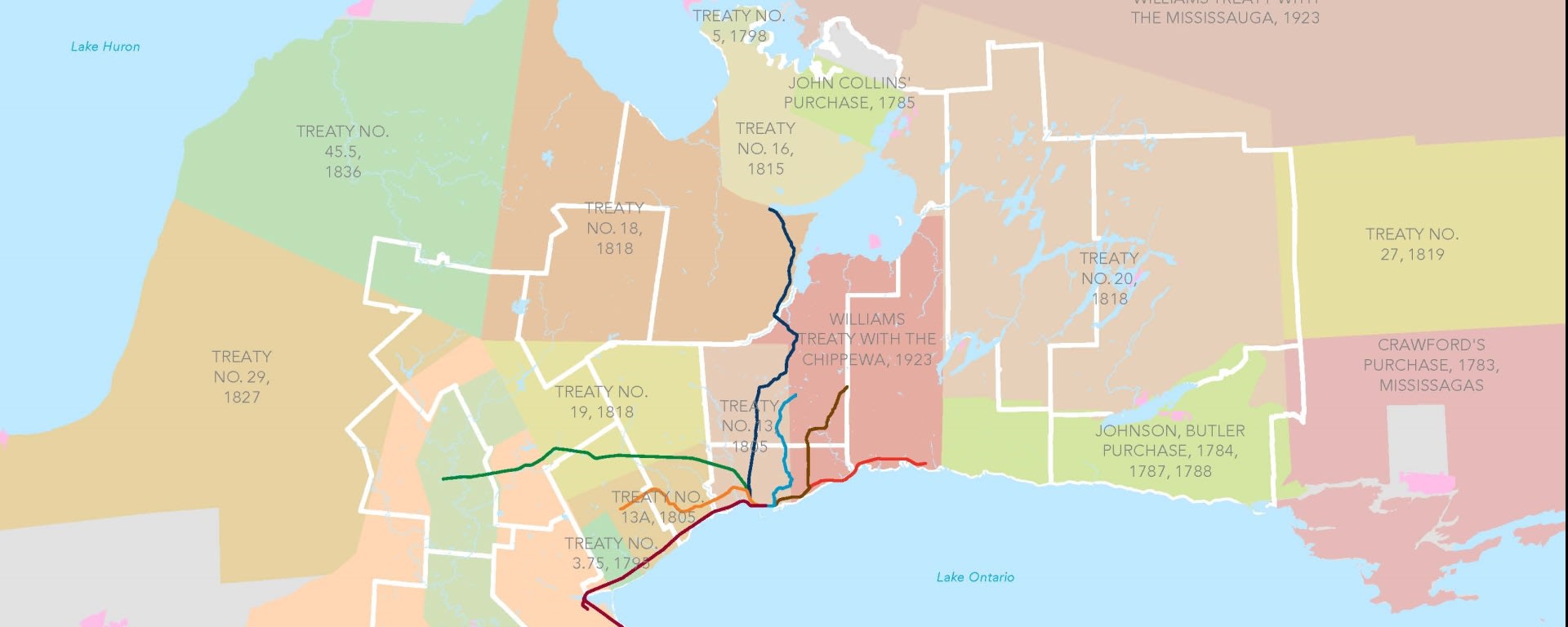Metrolinx marks National Indigenous Peoples Day
Member of Metrolinx’s Indigenous Relations Office explains the motivation behind their work.
Jun 19, 2020
As Canada celebrates National Indigenous Peoples Day this Sunday (June 21) it would be a failure to not see the parallel lines drawn clearly to the world’s ongoing Black Lives Matter movement and conversation.
The historical and current violence of colonialization, dispossession and trauma of Black Canadians and Americans is all too familiar to Indigenous communities. Like the Black community, Indigenous Peoples voices have been shut out. Metrolinx has committed to changing that.
More than a year ago, Metrolinx created an Indigenous Relations Office to guide and build relationships with Indigenous communities, customers, organizations and businesses.
Internally Metrolinx has committed to a number of things, such as:
- Successfully implementing a Land Acknowledgment Policy to recognize our collective responsibility to build meaningful relationships with the original keepers of this territory.
- Creating an Indigenous internship program to provide further employment opportunities.
- A commitment to learning opportunities such as the Recognition of Orange Shirt Day this past September 30th by handing out public education materials at Union Station and hosting an internal gathering with Indigenous knowledge keeper Kelly Brownbill.
The important work is also performed externally. Last December, Metrolinx hired an Indigenous Relations Specialist to work with Indigenous communities and organizations to listen and learn on how Metrolinx can support them and their transit needs.
His name is Aaron McMillan.
Indigenous Relations Specialist Aaron McMillan. (Aaron McMillan photo)
This past April, Aaron worked with Metrolinx and the Toronto Aboriginal Support Services Council to provide personal protective equipment (PPE) care packages to Indigenous organizations’ frontline staff and clients in Toronto. He has been an integral part of creating safe spaces at Metrolinx and building relationships.
We thought you’d want to hear Aaron’s thoughts, as we’re within days of marking National Indigenous Peoples Day:
“Being part of the Indigenous community and having spent my entire working life trying to improve the lives of my fellow Indigenous peoples has been extremely challenging, sometimes heartbreaking, but always incredibly rewarding.
“I have been fortunate enough to see and be a part of baby steps taken in the way of progress and change for Indigenous peoples. Steps taken by a race of people, broken, abused and with the burden of being almost entirely forgotten about by the Canadian public – but steps nonetheless.
“Our people are resilient and this has never been made more evident than witnessing the immediate and collective action by the Toronto Aboriginal Support Service Council (TASSC) and all their affiliated Indigenous organizations throughout Toronto, in their response to the COVID-19 pandemic.
“From the start they’ve taken care of our people in a way only Indigenous service organizations can, by providing emergency services such as food support, supplies and health services.
“While, like many others, I have been incredibly fortunate to work from home, much of the staff of these Indigenous agencies remain working frontline, often struggling to keep up with the need for adequate safety equipment.
“Indigenous services and organizations are consistently underfunded, over worked and under staffed. I could go on and on but such is the conversation when it comes to listing the inequalities of Indigenous people in Canada. When does it end?
“Working with Metrolinx and wondering how can I not only represent such a large organization, but also have it meet the needs of our Indigenous communities has been a humbling experience. Not only am I new to this position, but our Indigenous Relations Office was created just over a year ago.
“While I have already met some incredible coworkers and other staff members, I’m often reminded that Metrolinx is still just starting to build relationships with Indigenous communities. I’m faced with my own personal moral dilemmas and ask myself: What do we have to offer these agencies?
“What can we do to support all of our communities equally? How can we ensure when we are building relationships, they are built on mutual trust and respect? How do we provide support that is genuine? How do we ensure positive outcomes for these communities?
“I don’t know all the answers to these questions yet, but they are also not solely mine or our office’s to answer. It is the responsibility of Metrolinx as a whole to be informed by the communities we serve.
“We don’t give them the answers; we can open up the discussion but we need to listen, be informed by them and let them be heard. They are moving mountains with or without us and as a public service agency, we have a responsibility to mirror the public we serve – even if it starts with baby steps.
“Miigwetch – which means ‘thank you’, in the Anishinaabe language.”
Want to see how Metrolinx – including GO Transit and UP Express – moves across established treaty lands in Ontario? Just click here.
